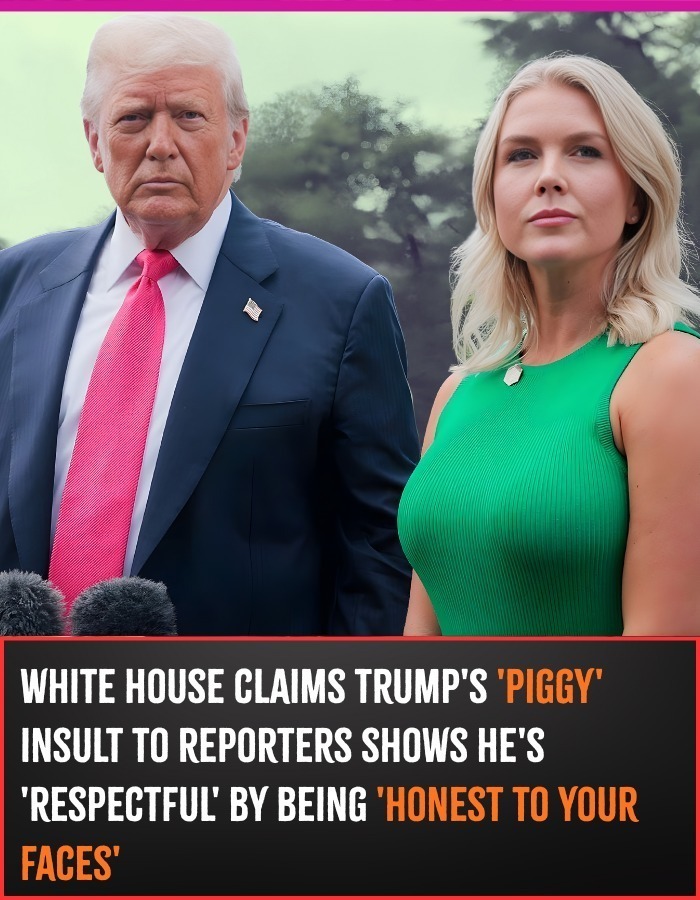White House claims Trump’s ‘piggy’ insult to reporters shows he’s ‘respectful’ by being ‘honest to your faces’
As the murmurs died down, Leavitt leaned into the microphone with a practiced calm that suggested both confidence and calculation. She reframed the insult not as a lapse in judgment but as a moment of brutal honesty that she claimed Americans had implicitly endorsed. In her telling, the harsh tone was not a mistake or a loss of composure. It was a sign of a leader who refused to retreat into scripted lines and polished political language. She portrayed Trump as someone who would rather speak from the gut than seek approval from pundits, pollsters, or journalists. By presenting the clash as a high stakes choice between blunt truth and a hypersensitive press corps, she avoided acknowledging the deeper disrespect embedded in the phrase that ignited the confrontation in the first place.
The room absorbed her remarks with a mix of resignation and skepticism. Reporters who had spent years covering the administration recognized the tactic. Instead of backing away from a controversial comment, Leavitt transformed it into a badge of authenticity. She implied that criticism from the media only proved the righteousness of the original remark. The briefing room, which had once been a space for clarifying facts and addressing policy, now felt like a stage for moral positioning. In this atmosphere, every question carried symbolic weight and every answer became an attempt to define the narrative rather than to inform the public.
The result was a briefing that clarified nothing and hardened everything. Trump’s critics watched the exchange unfold and saw what they believed was further evidence of an administration that elevates confrontation and cruelty while dismissing concerns about civility as mere political posturing. To them, the language was not refreshingly direct. It was corrosive. They argued that the normalization of insults weakens democratic norms and encourages public discourse driven more by humiliation than accountability.
Trump’s supporters interpreted the moment very differently. To them, the exchange confirmed that their candidate refused to yield to outrage from a media establishment they already mistrusted. They heard not aggression but resolve. They believed the refusal to apologize demonstrated strength and independence. The clash fit neatly into a narrative in which Trump stands alone against a hostile press, defending the concerns of ordinary voters who feel ignored or belittled by elite institutions. The same words that alienated critics served as proof of loyalty to his base.
Caught in the middle of this widening divide was Catherine Lucey, who had entered the briefing with a standard journalistic purpose. She pressed for details on the Epstein files, expecting answers that would illuminate public records and timelines. Instead, she became an unwilling symbol in a cultural battle much larger than her question. Her role shifted from reporter to avatar, not because of anything she said, but because the administration chose to frame her inquiry as an affront to their preferred style of communication.
In the end, Leavitt’s careful spin did not calm the situation. It solidified it. The exchange became another marker in an already fractured political landscape. Rather than diffusing tensions, the briefing reinforced entrenched identities on both sides. Each camp walked away more convinced of its own narrative and more suspicious of the other. This dynamic, repeated again and again, continues to shape the national conversation long after the microphones go silent.
